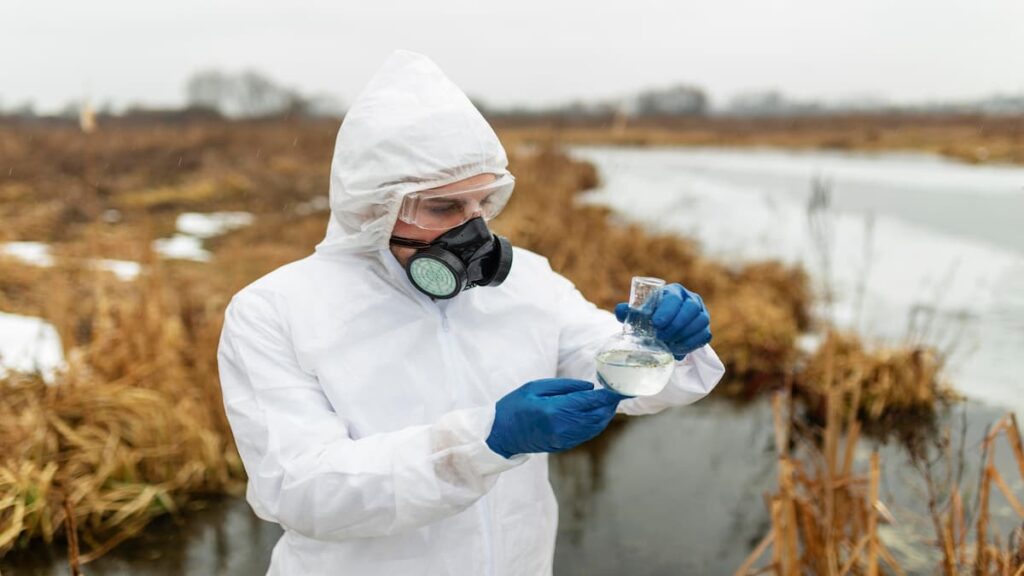The role of microbes in effluent treatment plants (ETPs)
Effluent Treatment Plants (ETPs) are very important for treating industrial wastewater. Natural microbial action is a significant factor in their success. Microbes break down things that are bad for the environment, making water safer to discharge or use again. Knowing the microbiological secret of better wastewater gives you a valuable tool for water pollution control.
How microbial solutions help in wastewater treatment
Bacteria, fungus, and protozoa are examples of microorganisms that are very important for breaking down organic contaminants. These tiny creatures eat garbage and turn harmful chemicals into safe ones. This natural process makes wastewater treatment far more effective, which means that less harsh chemicals are needed.
Microbial cultures in ETP systems
To get rid of certain pollutants in ETPs, several strains of bacteria culture and bio culture are grown. These cultures work together to break down complicated industrial pollutants. Using the correct bio culture for ETP ensures that waste is broken down as effectively as possible, which improves the overall performance of the treatment.
Advantages of using microbial solutions in industrial wastewater
Using the ETP microbial solution has many benefits. It lowers expenses by using less energy and chemicals. Microbial treatments also help the environment by using nature’s own cleanup staff. Industries that use these solutions see better treatment results and less harm to the environment.
How microbial solutions improve effluent quality
Microbial action efficiently reduces Biochemical Oxygen Demand (BOD), Chemical Oxygen Demand (COD), and other toxic chemicals. This results in cleaner water being released and following environmental rules. To get better effluent quality in industrial wastewater management, it is very important to use bio culture for ETP.
Challenges and solutions in using microbes for ETP treatment
It can be hard to keep microbial populations in good condition. Microbial activity is affected by factors such as pH, temperature, and toxic shocks. But these problems can be solved with ongoing monitoring and adaptive management, which make sure that treatment results are always the same.
Integrating microbial solutions with other treatment technologies
“Microbial treatments function best when they are used with chemical and physical methods. This integration, supported by the right effluent treatment chemicals, makes it easier to remove pollutants and keeps treatment operations stable. These methods work together to provide a complete solution for effective effluent treatment.
Case studies: Successful applications of microbial solutions in India
Many Indian businesses have successfully used microbial methods to deal with wastewater problems. They say that using specialist bio culture for ETP has made the water better and saved them money.
- India manages dairy wastewater with microbial engineering. Engineered microbial consortia reduce pollution and reuse water by treating dairy waste. Microbial bioremediation pilot projects in Indian dairies have met regulatory standards and improved environmental consequences.
- Microbial Enhanced Oil Recovery (MEOR) technology in India, particularly in Gujarat and Assam, has shown increased oil recovery rates from aging wells, offering a sustainable solution.
- India’s depleted soils are being restored using innovative microbial solutions, enhancing soil organic matter, fertility, and reducing chemical inputs, thereby boosting agricultural productivity.
These examples from the real world show how microbial treatment can be useful in various industries.
Future of microbial treatment in wastewater management
Ongoing research continues to broaden the possibilities of ETP microbial solution technology. The goal of advances is to create microbial strains that are stronger and work better. This progress means that wastewater treatment will be even more sustainable and effective in the future.
Embracing microbial solutions for cleaner ETPs
Using microbes to clean up industrial effluent is a sensible and environmentally friendly way. Using microbial solutions not only protects the environment but also helps businesses in water pollution control at a low cost. Use this natural ally to help keep the earth and water cleaner.


